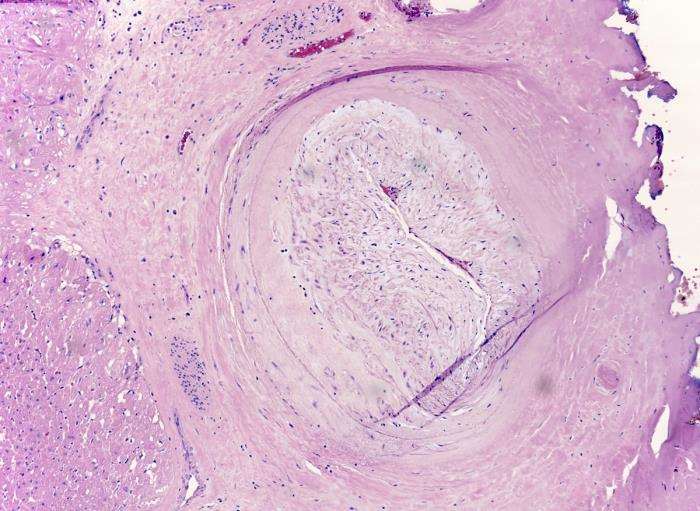Heart transplant surgery is a life-saving procedure for patients with end-stage heart failure or severe cardiac conditions. While it offers the chance for a significantly improved quality of life, the surgery is highly complex and comes with numerous risks and challenges. The intricate process involves matching donor organs, managing surgical precision, and addressing potential complications, both during and after the procedure. Understanding these risks is vital for patients and caregivers preparing for a heart transplant journey.
Medical disclaimer: This content is for general awareness and does not replace a doctor’s consultation. For diagnosis or treatment decisions, consult a qualified specialist.
Common Risks Associated with Heart Transplants
Heart transplant surgery is a major medical procedure, and like all surgeries, it carries risks. These risks can vary depending on the patient’s overall health, the condition of the donor organ, and how well the body responds to the transplant. Key concerns include organ rejection, infections, surgical complications, and side effects from necessary medications.
Organ Rejection: The Primary Concern After Transplant Surgery
Organ rejection occurs when the immune system attacks the transplanted heart, identifying it as a foreign object. This is one of the most significant risks post-surgeries. Rejection can be acute or chronic and may lead to heart damage or failure if not promptly addressed. Regular monitoring and adjustments in immunosuppressive therapy are critical to minimize this risk.

Infections Due to Immunosuppressive Medications
To prevent organ rejection, heart transplant recipients must take immunosuppressive medications, which lower the immune system's activity. While effective at reducing rejection risk, these medications make patients more susceptible to infections. Bacterial, viral, and fungal infections can pose serious threats, especially during the initial months following surgery.
Surgical Complications During the Transplant Procedure
The surgery itself is highly intricate and can lead to complications, such as damage to surrounding tissues, difficulty in connecting blood vessels, or technical challenges during the removal of the diseased heart and placement of the donor heart. These complications, though rare, require immediate medical intervention to ensure the transplant's success.
Risk of Bleeding and Blood Clots Post-Surgery
Heart transplant surgery involves extensive vascular work, increasing the risk of bleeding during and after the procedure. Blood clots can also form, potentially causing blockages in vital arteries or veins. Careful monitoring and anticoagulant medications help manage these risks.
Side Effects of Immunosuppressive Therapy
While immunosuppressive medications are essential, they can cause side effects such as kidney damage, high blood pressure, and an increased risk of certain cancers. Balancing the dosage to prevent rejection while minimizing side effects is a continuous challenge for healthcare providers.
Increased Risk of Cancer Following Transplantation
Heart transplant recipients are at a higher risk of developing cancer, particularly skin cancer and lymphoma, due to prolonged use of immunosuppressive medications. These medications, while essential for preventing organ rejection, weaken the immune system, making it harder to detect and destroy abnormal cells. Regular cancer screenings and protective measures, such as avoiding excessive sun exposure, are critical for post-transplant patients.
Kidney Damage Caused by Post-Transplant Medications
Certain immunosuppressive drugs, like calcineurin inhibitors, can lead to nephrotoxicity, resulting in kidney damage over time. Regular monitoring of kidney function and adjustments in medication dosages can help manage this risk. In some cases, additional medications or treatments may be needed to support kidney health.
Coronary Allograft Vasculopathy: A Long-Term Risk
Coronary allograft vasculopathy (CAV) is a unique form of coronary artery disease that can occur in transplanted hearts. It involves thickening and narrowing of the coronary arteries, potentially leading to heart failure. Regular cardiac evaluations, including imaging tests and biopsies, are essential for early detection and management of CAV.

Respiratory and Pulmonary Complications After Surgery
Post-operative respiratory issues, such as infections or pulmonary edema, are common after heart transplant surgery. These complications may arise due to the effects of anesthesia, prolonged immobility, or the body's response to the new organ. Prompt treatment and respiratory therapy can aid in recovery.
Psychological and Emotional Challenges in Recovery
Heart transplant recipients often face psychological challenges, including anxiety, depression, and stress related to the fear of rejection or complications. Counseling, support groups, and mental health therapies play a crucial role in addressing these emotional hurdles, ensuring a smoother recovery.
Managing Comorbidities That May Impact Recovery
Pre-existing conditions like diabetes, hypertension, or obesity can complicate recovery after a heart transplant. These conditions require careful management through lifestyle changes, medications, and regular medical consultations to minimize their impact on the success of the transplant.
Risk of Delayed Graft Function in Heart Transplants
Delayed graft function occurs when the transplanted heart does not perform optimally immediately after surgery. This can result from prolonged ischemia during transplantation or underlying donor or recipient factors. Intensive care and close monitoring are essential to manage this complication effectively.
Cardiovascular Risks Beyond the Initial Recovery Period
Transplant recipients may face long-term cardiovascular risks, such as hypertension, dyslipidemia, or arrhythmias, often as side effects of immunosuppressive therapy. Regular follow-ups and adherence to prescribed treatments are vital for mitigating these risks.
Impact of Age and Pre-Existing Conditions on Surgical Outcomes
Advanced age and the presence of chronic illnesses can influence surgical outcomes and recovery rates. While older patients may have a higher risk of complications, individualized care plans and advancements in medical techniques have improved outcomes significantly for these groups.
Lifestyle Factors That May Contribute to Post-Transplant Complications
Unhealthy lifestyle choices, such as poor diet, smoking, or lack of exercise, can exacerbate post-transplant complications. Adopting a heart-healthy lifestyle, including balanced nutrition, regular physical activity, and avoiding harmful substances, is crucial for long-term success.
Strategies for Monitoring and Managing Rejection Risks
Rejection remains one of the most significant risks following a heart transplant. Regular biopsies, blood tests, and imaging studies are employed to detect early signs of rejection. Immunosuppressive therapy, when carefully managed, helps reduce the risk while balancing other side effects.
Importance of Regular Follow-Up Care in Minimizing Complications
Ongoing follow-up care is essential for monitoring organ function, adjusting medications, and detecting complications early. Regular visits to a transplant specialist ensure that any issues are addressed promptly, improving long-term outcomes and quality of life.
The Importance of Post-Transplant Rehabilitation Programs
Explore the significance of post-transplant rehabilitation programs. This article highlights the importance of physical therapy and rehabilitation to improve recovery and overall quality of life for transplant patients, ensuring long-term health after the procedure.
Conclusion: Balancing Risks with the Lifesaving Benefits
While heart transplant surgery comes with inherent risks and complications, its life-saving potential outweighs these challenges for many patients. With advancements in medical care, vigilant monitoring, and adherence to prescribed regimens, recipients can lead fulfilling lives post-transplant.
Best Heart Transplant in India
The Best Heart Transplant in India offers a life-saving solution for patients with end-stage heart failure, using advanced surgical techniques and comprehensive post-transplant care.
Best Heart Transplant Hospitals in India
The Best Heart Transplant Hospitals in India provide state-of-the-art facilities, skilled transplant specialists, and multidisciplinary teams for seamless patient care and recovery.
Heart Transplant Cost in India
The Heart Transplant Cost in India is structured to offer affordability while ensuring access to world-class transplant services and comprehensive care packages.
Best Heart Transplant Surgeons in India
The Best Heart Transplant Surgeons in India have extensive experience in performing complex transplants, ensuring precise techniques and personalized patient care for optimal outcomes.
FAQs
What are the most common risks of heart transplant surgery?
The most common risks include organ rejection, infections, and side effects from immunosuppressive medications, such as kidney damage and increased cancer risk.
What is organ rejection, and how is it managed?
Organ rejection occurs when the immune system attacks the transplanted heart. It is managed through immunosuppressive drugs and regular monitoring for early detection.
Can infections after a heart transplant be prevented?
While infections are a significant risk due to immunosuppression, they can be minimized with preventive measures like vaccinations, proper hygiene, and regular medical follow-ups.
How do immunosuppressive medications affect the body?
These drugs lower the immune system's ability to fight off infections and increase risks like cancer or kidney damage but are necessary to prevent organ rejection.
What is coronary allograft vasculopathy, and how is it treated?
Coronary allograft vasculopathy is a form of chronic coronary artery disease affecting the transplanted heart. Treatment includes medications, lifestyle changes, and sometimes re-transplantation.